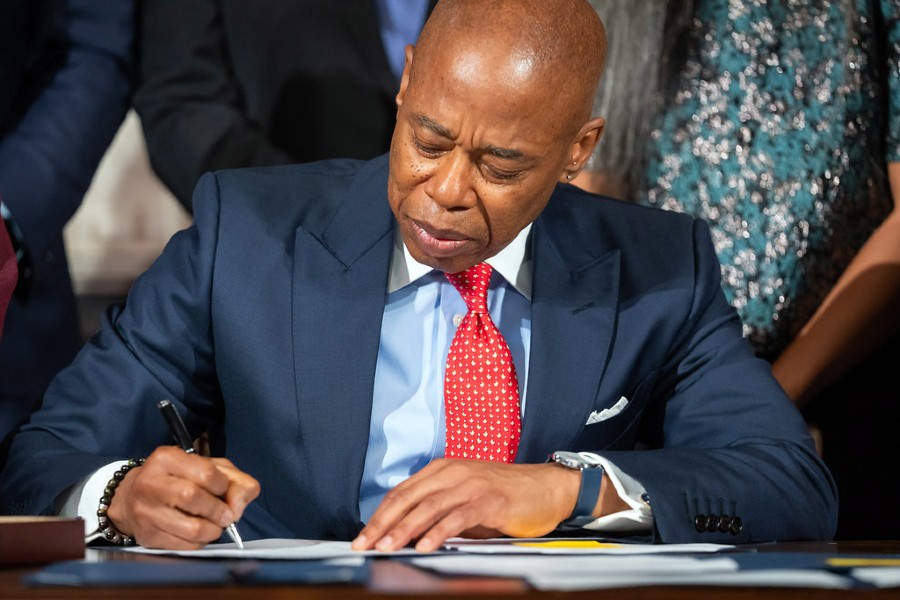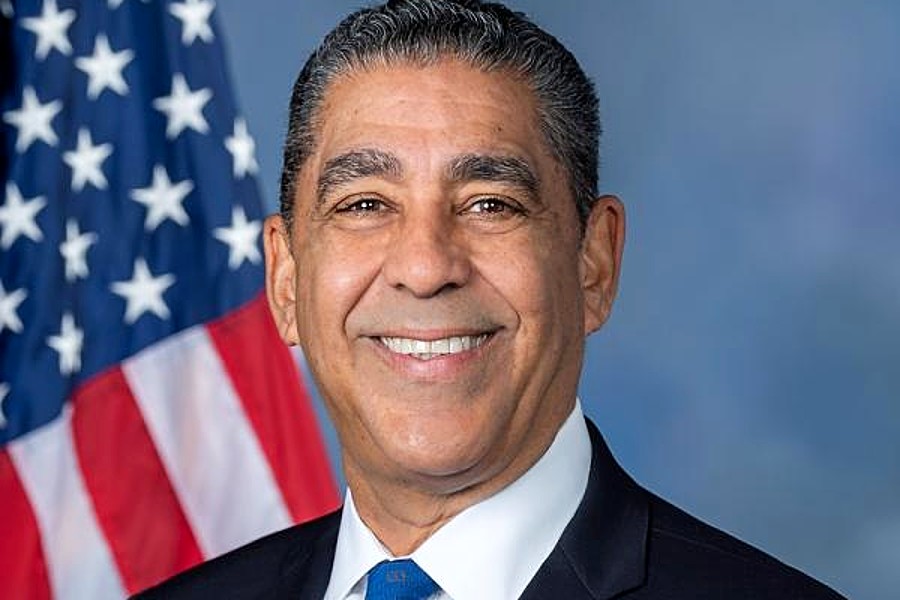 Mayor Bill de Blasio today announced a plan to increase affordable-housing protections for the nearly 10,000 artists and other New Yorkers who live in lofts overseen by the Loft Board. Among other proposals, the Mayor is seeking to restore the rights of all loft occupants who apply for legal protections to remain in their homes, and to keep lofts rent-regulated after a tenant is bought out by their landlord. Since 2004, the number of buildings with rent-regulated lofts has declined almost 30%.
Mayor Bill de Blasio today announced a plan to increase affordable-housing protections for the nearly 10,000 artists and other New Yorkers who live in lofts overseen by the Loft Board. Among other proposals, the Mayor is seeking to restore the rights of all loft occupants who apply for legal protections to remain in their homes, and to keep lofts rent-regulated after a tenant is bought out by their landlord. Since 2004, the number of buildings with rent-regulated lofts has declined almost 30%.
“We are looking to protect every affordable home in this City, including the nearly 3,000 remaining spaces converted into homes and studios by artists before these neighborhoods became fashionable. Besides working with the Loft Board, we will work hand in glove with our partners in Albany to increase protections for those who built these communities,” Mayor Bill de Blasio said.
The policy changes announced today will have a public hearing and be put before the New York City Loft Board for a vote by the end of the year. If adopted, the new rules will:
- Allow all occupants of a loft, often large live/work spaces, to apply for legal protection under the Loft Law, whether or not the occupant is the primary leaseholder. One of the primary benefits of this policy change is that if a primary leaseholder dies, family members living in the loft would already have legal protection to remain in the unit. A Loft Board policy change in 2010 revoked protections that helped “non-lessee” tenants remain in their homes.
- Stop the erosion of rent-regulated housing stock. Under an existing Board rule, if a loft tenant accepts a buyout from their landlord, the unit’s rent immediately goes to market rate. The City will act to keep these units affordable by making future rent increases subject to rent regulation.
- Close the pied-a-terre loophole for non-lessee tenants. All tenants who apply for Loft Law protection will need to prove that the space is their primary residence. This action will prevent non-lessees from keeping spaces as pieds-a-terre and then renting them to others on a short-term basis.
The Loft Law was passed by the New York State legislature in 1982 in response to a rapid increase in the use of manufacturing and commercial spaces as residential units, particularly in New York City. The Loft Law allows tenants to petition for their units to be legalized, brought up to code, and become rent regulated. Under the law, the City Buildings Commissioner serves as Chair of the Loft Board, a panel that regulates the conversion of loft spaces for residential use and decides whether specific units and occupants are eligible for legal protection.
The Loft Board process compels owners and tenants to work together to legalize eligible residential spaces in a timely manner. At the end of the process, most loft tenants are offered rent-stabilized leases, with initial rents set by the Loft Board.
“Lofts have long been a critical form of affordable housing, particularly for New York’s artists, but the number of rent-protected lofts has dwindled over the years. We look forward to working with the Mayor and his team to implement policy changes at the Loft Board to help keep New Yorkers in affordable homes,” said Buildings Commissioner Rick D. Chandler, PE.
“Live/work families look forward to a new chapter of collaboration with the City, one where basic affordable housing rights are protected and the arts are encouraged to flourish,” said Zefrey Throwell, of the New York City Loft Tenants advocacy group.
The Mayor’s actions today dovetail with legislative proposals in Albany to modernize the State’s Loft Law and expand legal protections for tenants. Among a wide range of protections, the effort in Albany seeks to clarify eligibility criteria and allow currently eligible tenants to file for coverage of their units at any time. It also increases the maximum penalty for landlords who fail to perform repairs or legalize spaces from $17,500 to $25,000.
“As Chair of the Assembly Housing Committee, I will continue to work with loft tenants and the Mayor’s Office to make sure the necessary changes to the law are made and that this type of affordable housing remains protected,” Assembly Member Steven Cymbrowitz said.
“Many loft tenants are still lacking basic protections due to legislative or regulatory loop holes. I appreciate the Mayor’s efforts to review and change regulations over which the City has control and look forward to continuing to fight for additional protections in Albany next session,” Assembly Member Deborah J. Glick said.
“I applaud Mayor de Blasio’s proposals before the Loft Board to strengthen loft tenants’ rights. Last session in Albany, my fellow legislators and I fought to repeal Bloomberg-era amendments to the Loft law that created significant burdens on working class renters. I stand with City and State officials to fight for affordable housing for live/work residents of New York City,” said Assembly Member Maritza Davila.
“Lofts are a part New York City’s fabric. Our creative economy was largely fueled by artists who lived and worked in the same space. While lofts serve many purposes, they continue to provide affordable housing that shapes New York’s live/work community. I commend the Mayor on his commitment to loft tenants. I will stand with him and continue the fight to preserve the backbone of our creative communities,” Assembly Member Joseph Lentol said.
Become a Harlem Insider!
By submitting this form, you are consenting to receive marketing emails from: . You can revoke your consent to receive emails at any time by using the SafeUnsubscribe® link, found at the bottom of every email. Emails are serviced by Constant Contact








